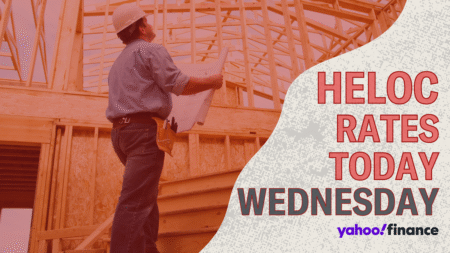Buying your first home is a thrilling experience — until excitement gives way to unexpected costs. From surprise repairs to insurance blunders, small oversights can snowball into expenses that drain new homeowners’ savings and delay financial goals. The good news? Many of the most costly first-time home buyer mistakes are completely avoidable with the right preparation and expert guidance. Here are seven of the most expensive mistakes and how to avoid them.
In a competitive market, you might find it tempting to waive the home inspection to stand out among other eager buyers. Experts say it’s a risky move that can backfire fast.
“Opting out of a home inspection may speed up the closing process or give you an advantage over other interested buyers,” Courtney Klosterman, home insights expert at Hippo Insurance, said in an email interview. “But you can increase the likelihood of taking on unexpected issues that could prove costly.”
It can also be tempting to skip the home inspection to save a few hundred dollars up front. However, an inspection may uncover roof leaks, foundation cracks, or plumbing problems — issues that can easily cost tens of thousands to repair. Klosterman said that having a professional inspection “… provides a clearer picture of your projected expenses as a homeowner.”
The fix: Treat the inspection as nonnegotiable. If you’re worried about losing out in a bidding war, consider making your offer “as-is” but still contingent on an inspection so you understand what you’re buying. A few hundred dollars spent now could save you years of regret later.
2. Underestimating maintenance and repair costs
Closing on your home and grabbing the keys isn’t the finish line — it’s the starting point of constant upkeep. Yet many first-time buyers focus solely on their monthly mortgage payment and underestimate the costs associated with maintaining their new investment. Klosterman recommended building up some cash reserves specifically for home maintenance.
“It’s recommended that homeowners set aside at least 1 to 3 percent of their home’s value each year for preventative maintenance and repairs,” she said.
Ignoring that advice can quickly lead to surprise bills. A failing HVAC system, leaky roof, or even the loss of a major appliance can wipe out savings overnight. To build up an appropriate savings cushion, Klosterman recommended using your home inspection report as a maintenance guide.
“Start by familiarizing yourself with the systems in your home, their age, and their potential maintenance needs,” she said. From there, you can target a savings level that covers you for the worst of the worst should it come to pass.
The fix: Create a seasonal maintenance checklist and a rainy day fund. Both can help you regularly evaluate your home and keep minor repairs from becoming bigger ones down the line. A well-maintained home will also hold its value better throughout the years and reap rewards should you decide to sell.
First-time buyers often assume that standard homeowners insurance covers natural disasters. Sadly, it doesn’t. Floods, earthquakes, and sewer backups are typically excluded, and many homeowners don’t realize that until it’s too late.
“First-time home buyers should know that not all policies are the same,” said Klosterman. “Our Housepower Report found that 63 percent of homeowners surveyed believe flood insurance is included in a standard policy.”
Those assumptions can prove expensive. Separate flood insurance or earthquake coverage can cost a few hundred to several thousand dollars per year, depending on where you live. While those expenses add to your monthly payments, it’s a small price compared to the financial hit of replacing everything after a natural disaster.
The fix: Review your homeowners policy line by line before you reach the closing table. Ask your agent about your deductible, what’s excluded, and whether you need riders for high-value items or region-specific risks. It can also pay to ask about flood and earthquake insurance requirements during the home shopping stage. Also, you could save thousands by purchasing a home that’s outside of disaster-prone areas and negate the need to purchase flood or earthquake insurance altogether.
It’s easy to say, “Well, I’ll just wait to buy until next year when the market gets better.” Maybe you’re waiting for mortgage rates to fall or housing prices to drop. However, the truth is that waiting for the perfect market can cost you even more than acting now.
“One of the biggest mistakes I see first-time buyers make goes something like this: re-signing their lease and saying, ‘We’ll just try again next year when the market is better,’” Olivia Stohle, a Chicago-based real estate broker at Compass, said in an email interview. “Spoiler alert: It won’t be better.”
Stohle pointed out that housing markets rarely shift overnight. “You have to plan for the market you’re in, not the one you wish existed,” she said. Today’s interest rates and home prices are just that: today’s. What either of those will be tomorrow or next year is anyone’s guess.
The fix: When your finances are ready — not when the headlines say “it’s time to buy” — make your move. Lock in a mortgage rate you can afford and focus on the long-term benefit of building equity instead of chasing a mythical perfect housing market moment.
Hiring an experienced real estate agent is one thing. Listening to them is another. Stohle said many first-time buyers lose money because they ignore seasoned advice.
“This one’s tough because first-time buyers just don’t have the context yet,” she said. “I’ve seen clients go $50,000 over budget with no contingencies and hope for the best. Then they lose, and it breaks my heart because I already knew they would.”
Agents understand how to help you navigate bidding wars, home appraisals, and contingencies — details that can make or break your deal. They’re there to help you make the strongest possible deal so you don’t waste your time and lose money where it can easily be saved. “The mistake isn’t losing [the deal],” said Stohle. “It’s not trusting the person who’s seen this movie a thousand times.”
The fix: Choose an agent who communicates clearly and aligns with your goals. Once you do, trust their read on the market. They’re not just salespeople — they’re strategists.
Even if you’ve found your dream home, showing up to the negotiation table unprepared can cost you big. Kirsten Jordan, a licensed associate real estate broker at Corcoran, said many first-time buyers “…jump straight to a listing and try to negotiate without having their ducks in a row.”
“You need to have your financing lined up, a sharp attorney, and a solid handle on comparable prices to avoid getting steamrolled by the seller’s agent,” Jordan said in an email interview.
Another common surprise? Closing costs. Depending on your state, those costs can quickly add up to 2% to 5% of the purchase price, and you likely won’t be able to roll them into the mortgage.
The fix: Get preapproved for your mortgage before you start house hunting. Additionally, ask your lender for a detailed Loan Estimate so you can see a line-by-line breakdown of closing costs. It’s also wise to keep an extra cash stash to cover any unexpected expenses on closing day.
Fixing up your new home so it’s truly to your liking can certainly be rewarding — but without experience, DIY projects can quickly turn from money-savers into budget-busters.
“Be realistic about your abilities,” warned Klosterman. “Mistakes can outweigh DIY savings if you have to call in a professional to fix them.”
Even painting or small remodeling projects can balloon once you factor in material costs, tool rentals, and time to complete the project. For larger-scale repairs and remodels, Klosterman noted you’ll need to consider city codes and permitting requirements, both of which can force you to modify your plans and increase costs to ensure your project meets local building code requirements.
The fix: Start small. Handle cosmetic projects that align with your skill level, but leave specialty tasks like plumbing, electrical, and structural work to licensed professionals. Paying for expertise is often more cost-effective than repairing mistakes.
Skipping the home inspection tops the list of first-time home buyer mistakes. According to experts, it’s the easiest shortcut to regret — one that can cost tens of thousands in hidden repairs. A professional inspection provides leverage for negotiations and clarity on what you’re buying and for how much.
How much should first-time home buyers budget for maintenance and repairs?
Courtney Klosterman, home insights expert at Hippo Insurance, suggested setting aside 1% to 3% of your home’s value annually for maintenance and unexpected repairs. For a $400,000 home, that’s $4,000 to $12,000 a year. Keeping that fund separate can prevent a financial crisis when things break.
First-time buyers often assume that a standard homeowners insurance policy covers every kind of damage, when the opposite is true. Most policies exclude damage from floods, earthquakes, and sewer line backups, all of which require separate coverage. Reviewing your policy with an agent annually can help ensure you have coverage that aligns with your geography and the common needs of homeowners in your area.
Laura Grace Tarpley edited this article.
Read the full article here












